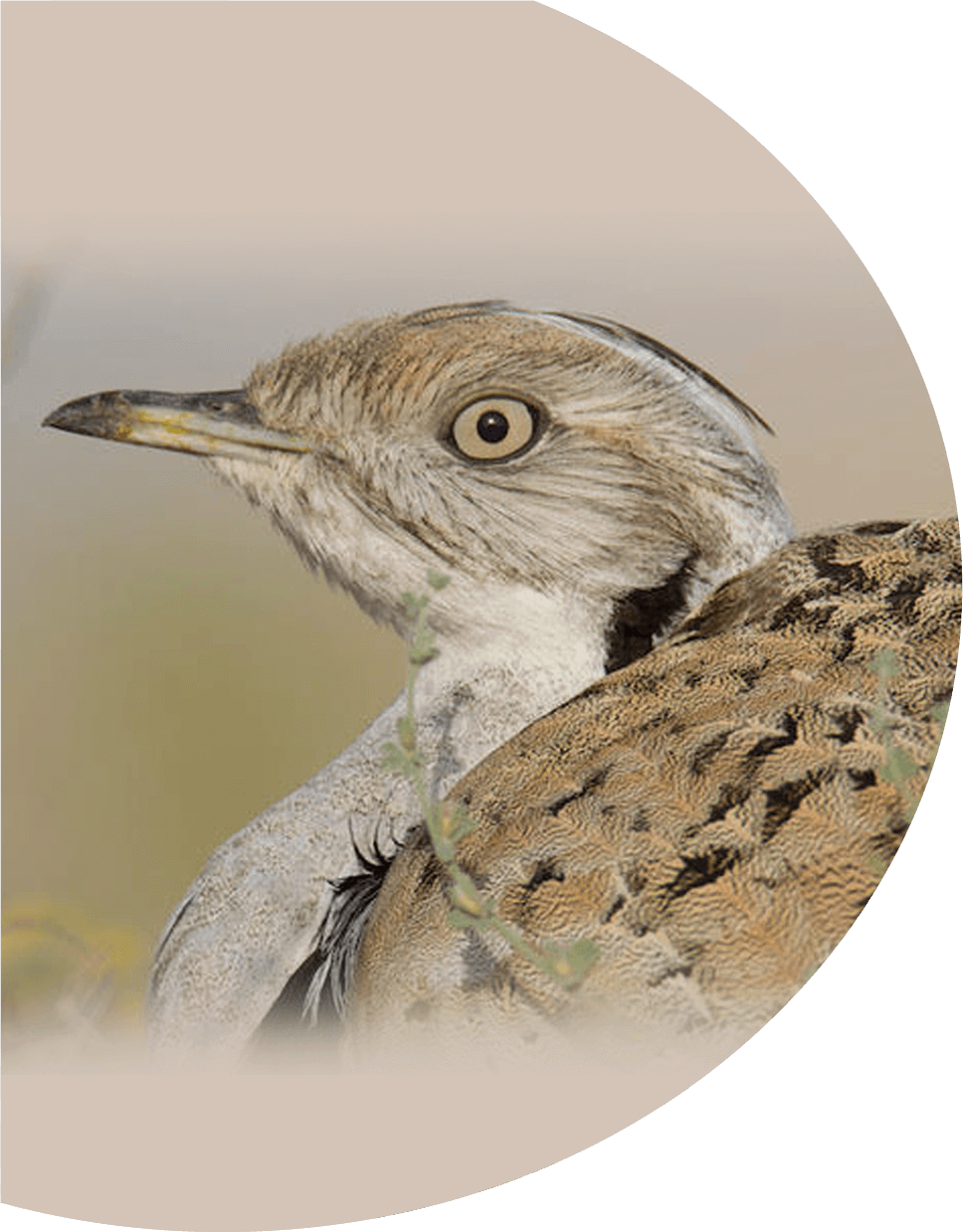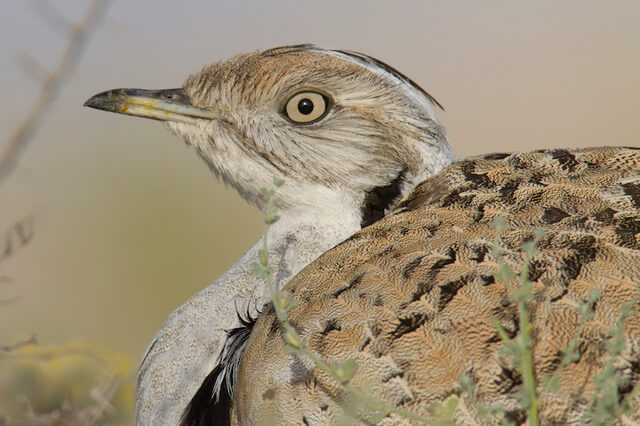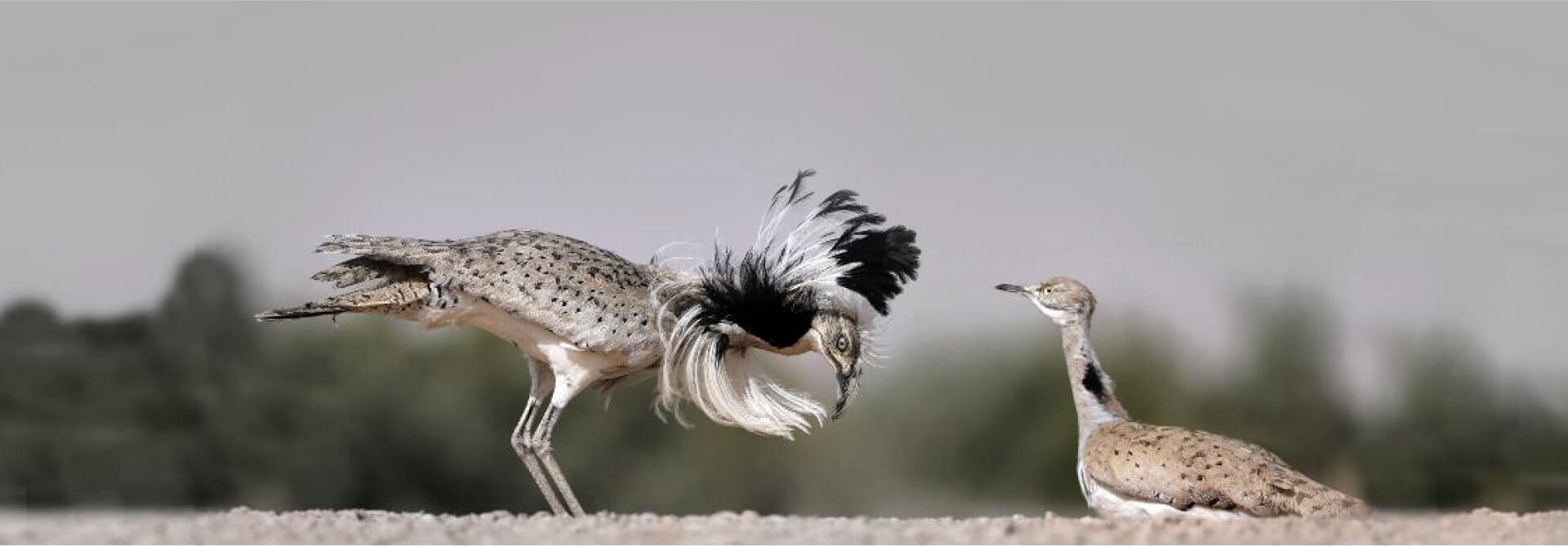

About IFHC
Initiated by the late Sheikh Zayed, Abu Dhabi undertook a programme to restore the endangered houbara bustard. A global conservation strategy was developed and then implemented over the past forty years with the objective of ensuring the species has a sustainable future in the wild through effective and appropriate conservation programmes and management plans. From 1995, the conservation strategy was adopted, which consisted of an integrated approach combining sound ecology, protection measures in the wild, conservation breeding and reinforcement programmes.
Established in 2006 in Abu Dhabi, the International Fund for Houbara Conservation (IFHC) is an organisation dedicated to the restoration and preservation of the Houbara bustard – a bird listed as a vulnerable species significant to Arabian culture and heritage.
MAIN WORK
With more than four decades of progress, IFHC has evolved into the leading authority on the ecology of the species and the genetic future of the bird in captivity. The Fund has pioneered scientific breakthroughs on the behaviour, breeding and migration of the Houbara and in supporting wild populations of Houbara across its range countries. As a result, more than 400,000 Houbara have been bred at the IFHC’s breeding centres with over 300,000 released back into the wild.
IFHC’s objective is to restore and secure sustainable wild populations of the specie as well as manage a network of dedicated research and breeding facilities across the range of the Houbara.
Furthermore, the Fund works with most of the countries along the Houbara migratory route through various partnerships and agreements, cementing IFHC’s position as a global leader in pre-emptive species conservation.

To ensure that the future generations learn, understand, embrace and enjoy the Houbara in the wild, the Fund is committed to restore the ecosystem based on the six key pillars, which include:
Conservation Breeding and Release:
To restore wild populations through continued learning and translating this into more effective outcomes.
Wild Reserves and Protection:
To use resources of experience and knowledge in species conservation to secure the protection of vital eco-systems and range countries, so that the species can flourish.
International Affairs:
To create viable eco-systems for sustainable Houbara populations through deeper international partnerships across the range countries and with international organisations.
Legislation/Regulation/Enforcement:
To unite behind shared and enforced legal and regulatory agreements that provide a framework that will sustain the Houbara in the wild while maintaining cultural heritage.
Culture and Heritage:
To support falconry organisations, both local and international, in achieving the best outcomes for the long-term sustainability of falconry heritage.
Education:
conservationists and falconers about sustainability using our the Houbara as a unique case study on conservation in action through its Conservation.